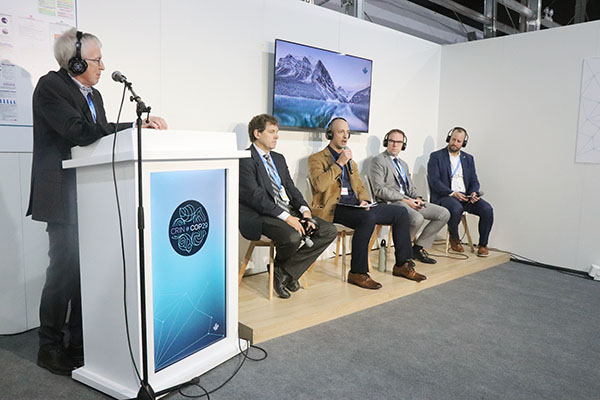Nov 16, 2024

Methane Technology Development and Commercialization – From Canada to the World
Petroleum Technology Alliance Canada (PTAC) hosted a conversation at COP29 about Alberta and Canada’s progress in detecting, quantifying, and reducing methane emissions, challenges in methane detection and quantification, findings from field studies, and investments in technologies that have contributed to overall methane emission reductions.
Weighing in on the topic were:
Moderator Marc Godin, Director of Technology for PTAC
Matthew Johnson of Carleton University, who heads the Energy & Emissions Research Lab (EERL), who conduct internationally renowned research quantifying and mitigating methane and black carbon emissions in the upstream energy sector. Matt is also Scientific Director of the NSERC FlareNet Strategic Network, a collaboration of five Canadian Universities and several national and international partners to quantify and mitigate flaring in the oil and gas sector.
Timothy Egan, President and Chief Executive Officer of the Canadian Gas Association, President of CGA Enterprises Inc., and the Chair of the Board of Directors on the Natural Gas Innovation Fund Capital Corporation.
Patrick McDonald, Assistant Deputy Minister - Air, Climate and Clean Technology, Alberta Environment and Protected Areas.
Yvan Champagne, Chief Carbon Officer at CarbonAi
Godin said some of the themes that emerged from the session were Alberta's success and accomplishments, and working with governments, producers of oil and gas, technology adopters, the innovation sector, academia, the private sector, and entrepreneurs.
"That mix is working well in Canada and Alberta, and it's not an opinion," Godin told CRIN. "It's a fact. We have the numbers to prove it. The headline that you hear is the 52 per cent of emissions reduction on methane, but there's other numbers that can be used to prove the same thing."
Godin said the other big theme is taking those achievements and sharing them with the world; other jurisdictions that have the same challenges that Alberta has solved already or partially solved.
"We could share that knowledge either through education and events like this one or by selling to them on commercial terms the products, services, and technologies that we have," Godin said.
"Thirdly, the last point to make is those achievements are not enough," he added. "So while we may celebrate those achievements, there's a bigger target to reach in the future to avoid disastrous climate change, so we're not there yet, and the monetization of those achievements allows us to fund and support and get additional funding for the next wave of technology and implementation."